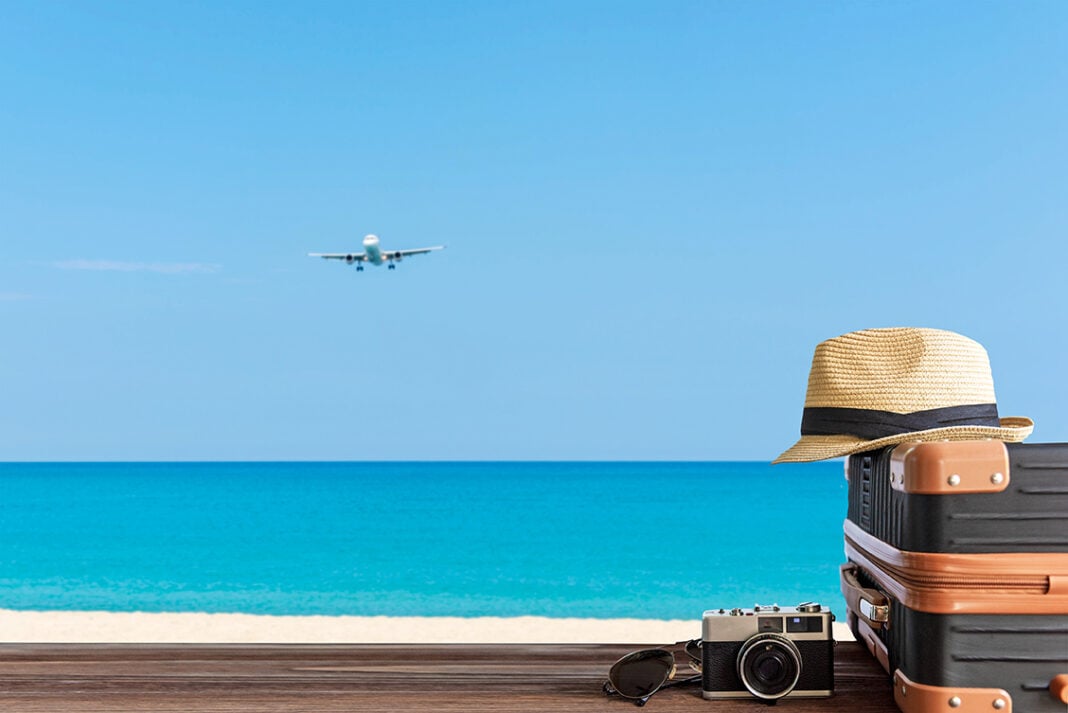You’ve spent years of your life writing a dissertation – and, like many academics, you might be struggling with the work. You feel stuck, and you’re having trouble coming up with new ideas or keeping your motivation high. But did you know that travel can actually ignite your creative spark and give you new ideas about what to research? Traveling can provide fresh perspectives and ideas for your dissertation research, and seeking UK dissertation help can help you integrate these insights effectively. UKWritings.com offers specialized writing assistance for UK dissertations, making it a valuable resource for incorporating your travel experiences into your research.
Broadening Your Perspective
It is easy to start obsessing over one strand of your thinking or research topic when you are based somewhere for a long period of time. You become so blinkered that you are only seeing your own work in ways that don’t enrich or reward it. Travel can transform the way you see things, because in visiting somewhere new, you meet people with other perspectives and backgrounds, and see how ways of working in the world can differ. This can provide new angles on your research topic.
For example, if you are writing about education systems, you might know that traditional schools exist in your country. But you might not have seen schools in other countries that seem innovative, or at least different in a way that interests you. You might pick up some good ideas after traveling to other countries and learning about their educational systems and how those systems are implemented on a daily basis.
Gaining First-Hand Experience
Sure, you could read about things but, better, you see them happen. Travel affords the opportunity to see and do research-related things – and this experience is invaluable for the dissertation.
For example, suppose you’re working on a piece about environmental science, and have been reading about coral reefs. Studying photos of bleached coral is informative, but the experience of gazing at a bleached reef in person will almost certainly be bigger. You might notice details that your textbooks don’t mention, or start to understand the scale of the issue in a way that a photo simply won’t allow. You’ll be able to write with greater vividness and impact, perhaps because the experience allows you to ask questions that weren’t on your radar before.
Finding New Research Opportunities
Traveling can spark new ideas and insights for your dissertation research, and working with the best thesis writer in the UK can help you effectively incorporate these inspirations into your work. Even the most experienced researchers know, from time to time, that the best research situations can present themselves when you least expect them: while traveling. Perhaps you will find a piece of information that you wouldn’t have otherwise found, or some works that are not available online, guidebooks that would be useful in your topic, or an expert in your field who is willing to interview you.
If you are working on, say, the history of a town or geographical area, and travel there as part of your research, you might well discover that there is a local archive that has lots of documents that have so far not been part of the historiography – and which you will have the opportunity to study and use as primary sources in researching your dissertation. You could strike gold. One of the most important attributes for good research is therefore openness and the willingness to follow up on whatever leads you.
Networking and Making Connections
One of my favorite things about traveling is meeting new people. This is especially useful for the PhD, where it’s important to connect with other researchers or experts in your field. A good way of doing this is by attending conferences or workshops in other places, so you can meet people face-to-face and talk about your work with them.
Such connections might be invaluable: you might find someone who could give you feedback on your ideas, or suggest resources that you weren’t aware of; you might find people to work with for the next paper or project; or you might just need to vent about a frustrating aspect of your dissertation – but at the very least, you will be creating a network of contacts in your field who, whether or not you use them for this particular project, could help you with your career going forward.
Recharging Your Batteries
Ultimately, having a dissertation to work on is an exhausting endeavor – or, in the words of my old editor Pam Mandel at Gadling, a mental marathon requiring regular mental marathon training. Sometimes, the best things that you can do for your research are those things that you have to do with your dissertation stowed away. Travel is one of those things.
When you’re exploring a new city, you’re forcing your brain to use different parts to get around and to learn about your location. You’re not staring at the same computer screen or poring over the same books, which prevents burnout and helps to keep you going when the strain gets too much. Traveling can also reignite your enthusiasm for your topic by giving you a mental break from it so that when you return you are fresh with ideas and vigor and can work with new energy and interest.
Cultural Insights
If your work focuses on different cultures or societies, then travel can be extremely helpful. Reading about a culture is one thing, but experiencing it is another. You can sit and watch how people act, taste the food, participate in their traditions, and learn about how people really live in a day-to-day sense.
For instance, if you’re studying sociology and are interested in community structures, actually visiting different kinds of communities around the world can help to better inform your work. You might see things that you wouldn’t have noticed otherwise; you would pick up on patterns that might make your dissertation richer and more authentic.
Language Learning
Knowing a few languages in different fields is a big asset and, when you travel, particularly overseas to where they speak other languages, this is a great opportunity to practice. This is particularly helpful in the field as you often need to read sources or conduct interviews in other languages.
At least if you ‘leave’ without learning some basics of at least one language used in the place where you sojourned, you’ll miss out on new insights about how people in that culture think about the world and express ideas. This is particularly important if you are a student of linguistics, literature, or cultural studies.
Comparative Analysis Opportunities
| Field of Study | Local Research | Travel-Enhanced Research |
| Education | Understanding one education system | Comparing multiple education systems across countries |
| Environmental Science | Studying local ecosystems | Analyzing ecosystem variations in different climates |
| Sociology | Observing local community structures | Comparing community dynamics across cultures |
| History | Focusing on national historical narratives | Exploring how historical events are perceived in different countries |
| Economics | Analyzing local economic trends | Comparing economic models and their effects globally |
| Art History | Studying art in local museums | Examining artistic styles and influences across regions |
It also allows you to make comparisons, and building up a handful of these comparisons could lend some nuance and texture to your dissertation. Doing a dissertation is unlike anything you have done before. These free online modules provide clear, step-by-step guidance on getting started, developing a research question, writing a literature review, and meeting submission deadlines.
Challenging Your Assumptions
Even when you are deep into your research and you feel you are writing a good book on the subject, you will have made certain assumptions – or at least you will have made an assumption you are not entering the field with a certain willingness to see things in a different way. Fieldwork, particularly by traveling, can help you emerge from the chrysalis of your assumptions by showing you that other people think and do things in other ways. This is often an uncomfortable experience but a very important one for your research.
For example, if you are studying business practices, and have worked your whole life in the West, engaging with the world in East Asia could force you to confront completely different leadership styles, decision-making processes, or work-life balances, challenging your own ideas, and leading to much more nuanced, well-rounded research.
Inspiration for Interdisciplinary Connections
Sometimes, innovation comes from making cross-disciplinary connections. You will be exposed to a diverse range of experiences when you travel, and you could find that something you observe while traveling relates to your research in a way you would never have thought of if you stayed home.
For example, if you are studying urban planning, perhaps you might travel to a city that has an innovative approach to the transportation system. Seeing this might cause you to find out how public transit systems influence community health in combination with ideas from the fields of urban planning, public health, and sociology. These sorts of interdisciplinary connections can make your dissertation more innovative and meaningful.
Developing Research Skills
But another research skill can also be honed while traveling. If you want to be a good researcher, you need to be observant, you need to be able to ask good questions – and sometimes to ask the right question, you have to be willing to accept the answer when it comes in a different guise than you had expected. You have to be able to roll with the punches.
For example, if you’re using public transport to get around an unfamiliar city, you’re refining your information-gathering, problem-solving, and adaptation to systems skills. If you’re interrogating locals about their lived experiences, perhaps you’re refining your interviewing skills by asking good questions and paying attention to people. All your skills can be directly relevant to the research of your dissertation.
Conclusion
Working on your dissertation while traveling isn’t just a little break from your work or a chance to have some fun (been there, done that – and it’s nice to get away, too). From expanding your viewpoint and seeing the subject of your research first-hand to applying for new research opportunities, looking at new areas for your work, and challenging your assumptions, travel can inspire and inform your work in powerful ways.
Of course, not everyone has the opportunity to travel quite so extensively while in PhD limbo. But many of these benefits can come even from shorter trips, or from local jaunts. The point is to travel with curious, research-oriented eyes.
While it is always good to look at different places and have a variety of subjects, a great dissertation is not about collecting information; rather, it is about taking a fresh look at your field of study and asking new questions. By bringing your knowledge of different sites into your research area, your dissertation will be richer, more nuanced, and more compelling – and you might even land a prestigious job and a high salary.





